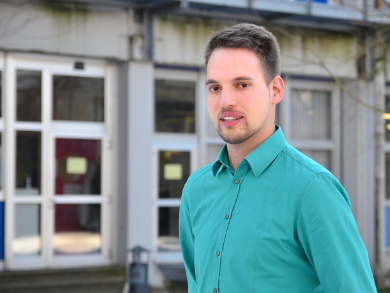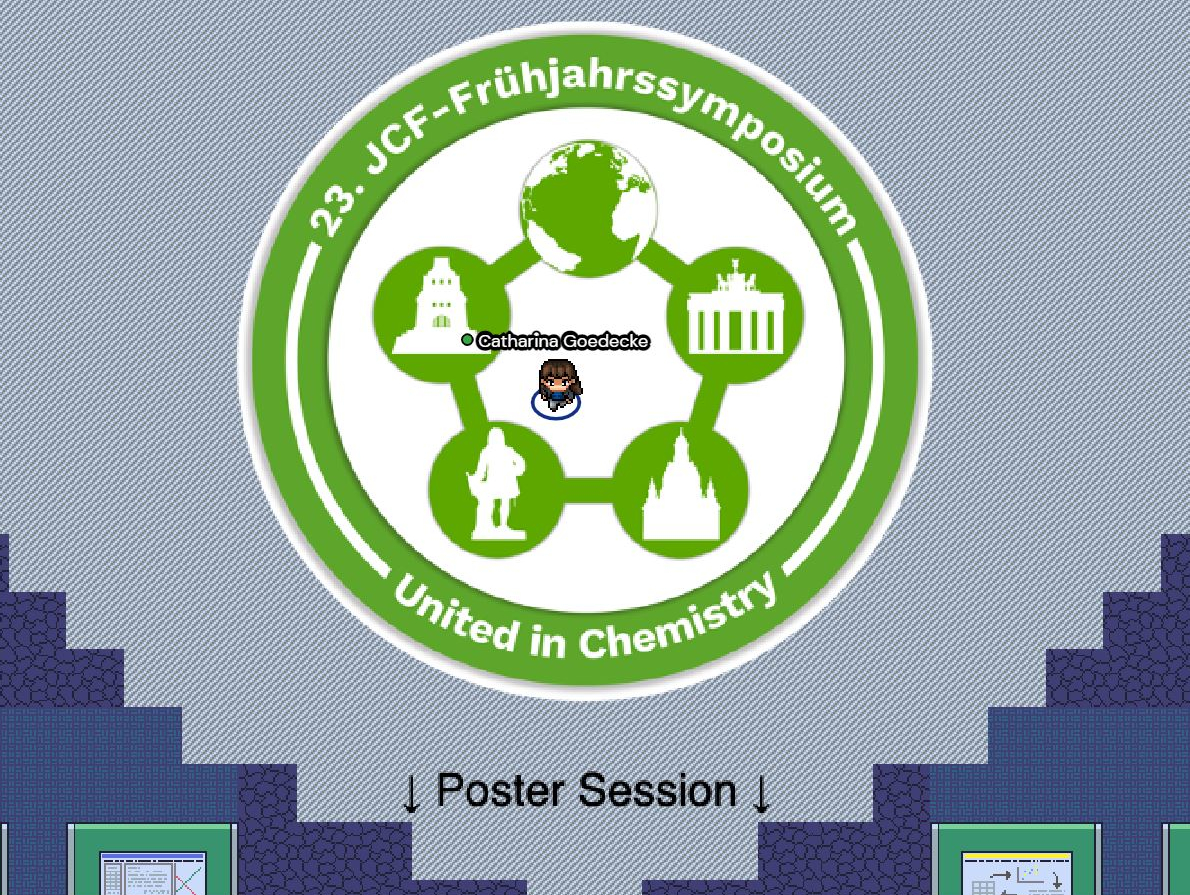The Stiftung der Deutschen Wirtschaft (sdw; Foundation of German Business), located in Berlin, was founded in 1994. As one of the country’s largest educational institutions, the foundation supports, e.g., particularly high-performing students. Kilian Westkamp is one of these students. He is studying chemical engineering in his fourth semester.
In this interview, he talked to Dr. Vera Koester for ChemistryViews.org about his fascination with chemical engineering, his social engagement as a swift water specialist and emergency diver, and his already notable career path.
What got you interested in chemical engineering?
I grew up in Lingen in Northern Germany. I had a technical interest and, therefore, the refinery there, BP Raffinerie Lingen, quickly caught my attention. After an internship, I started my apprenticeship as a chemical production technician there.
And now you are studying chemical engineering in the fourth semester. How did this happen?
After completing my apprenticeship, I have pursued training as a technical engineer. In the penultimate semester of the technical engineering course, I wrote a project thesis on the chlorine balance from a continuous catalytic reformer (CCR). This strengthened my ambition and I decided to cancel my permanent employment and to study chemical engineering.
What do you like best about chemical engineering?
I like the complexity most. There is always something to ponder and one is never bored. Often, problems can be solved by analytical thinking, but not everything can be explained or calculated logically. Sometimes, things simply have to be tried out. I like this mix very well.
You have a scholarship from the sdw. How did you hear about the foundation?
I became aware of the sdw on the internet while I looked at different organizations for the promotion of young talents. The Foundation of German Business represents initiative, entrepreneurial spirit, commitment, and social responsibility. Through my part-time training as a technical engineer—in an evening school over four years—and the establishment of my own business as a photographer, as well as my volunteer work I could identify directly with the values of the sdw.
How did you apply and which selection criteria did you have to fulfill?
The first step was an online application. Then followed a short interview at my university in Münster and a two-day assessment center in Berlin. In Berlin, I was tested intensively on the selection criteria: social commitment, outstanding professional achievements, and the determination to achieve one’s goals. In addition, social skills, general knowledge, connected thinking, and communication skills were further selection criteria.
What advantages does the scholarship offer? What do you experience?
The Foundation of German Business is already like a second family for me. I have direct contacts and was able to quickly build a network with other motivated students. The sdw offers me a powerful program for individual development through seminars and workshops, as well as numerous events that deal with current issues of business and society. In March, I visited a five-day event in Berlin on the topic “The Future of Work”, which is particularly interesting for me in terms of Industry 4.0.
Through the sdw, I have also become a scholarship holder of the Employers Association Ruhr/Westphalia and as a result, I have even closer contact with local companies. I am also financially supported by the sdw. I receive an allowance for study costs of 300 € and an income-dependent scholarship of max. 649 € per month.
One selection criterion was social commitment. Can you tell us a bit about what you are doing?
Since my childhood, I have been a member of the DLRG or the Deutsche Lebens-Rettungs-Gesellschaft e.V. (German Lifeguard Association). With around 1,500,000 members and sponsors, it is the largest voluntary water rescue organization in the world. As a child, I learned to swim there. Since 2007, I was involved in our local group—first as committee member for youth work on the board of directors, later as deputy youth chairman.
What is most exciting about this for you?
What I particularly like is contact with other people and that you can make a difference in society. The main goal of the DLRG is the reduction of drowning deaths through prevention and swimming education or through humanitarian aid.
Today, I am almost exclusively involved in the emergency service. Last summer, I spent two weeks on the Baltic Sea as a lifeguard at a water rescue station with many other young lifeguards. In addition, I am an emergency diver and swift water rescue specialist. This is the risky part of the volunteer activity. As a rescue diver, I do small work missions underwater or seek for missing persons at the bottom of a river. Unfortunately, the latter is much more common.
Do you have additional hobbies besides your activities in the DLRG?
I like to travel a lot: mountain biking, hiking, or just visiting other cities. Last year, I hiked along the Way of St. James from Porto to Santiago and this year, I have planned a trekking tour in Iceland.
I also like photography and take part in the regional youth organization of the German Chemical Society (JCF of the GDCh). There, we are currently planning a trip to the ACHEMA in June, the World Forum for the Process Industry.
What would you like to be doing ten years from now?
In ten years, I would like to participate in the scale-up and development of chemical process plants and their optimization. Also, in conjunction with foreign trips, I would like to monitor the commissioning of new plants on site.
What else would you like readers of ChemistryViews to know?
It is not easy to study through second chance, but in retrospect, I would follow the same path again. I gained valuable experience during my apprenticeship and my employment as an operator. Now I can combine theory directly with practice.
Thank you for this interview and all the best for your further career.
 Kilian Westkamp, born in 1993, was trained as a chemical technician at BP Lingen, Germany, from 2009 to 2012, and as a technical engineer at Hans-Böckler-Berufskolleg Marl/Haltern (HBBK), Germany, from 2012 to 2016. Since 2016, he studies chemical engineering at the Münster University of Applied Sciences, Germany, to obtain a B.Sc. degree.
Kilian Westkamp, born in 1993, was trained as a chemical technician at BP Lingen, Germany, from 2009 to 2012, and as a technical engineer at Hans-Böckler-Berufskolleg Marl/Haltern (HBBK), Germany, from 2012 to 2016. Since 2016, he studies chemical engineering at the Münster University of Applied Sciences, Germany, to obtain a B.Sc. degree.
Selected Awards
- Scholarship holder of the Studienförderwerk Klaus Murmann (Stiftung der Deutschen Wirtschaft; German Business Foundation) since 2017
- Scholarship holder of the employer organization Ruhr/Westfalen (Arbeitgeberverband Ruhr/Westfalen Ruhr/Westfalen) since 2017




